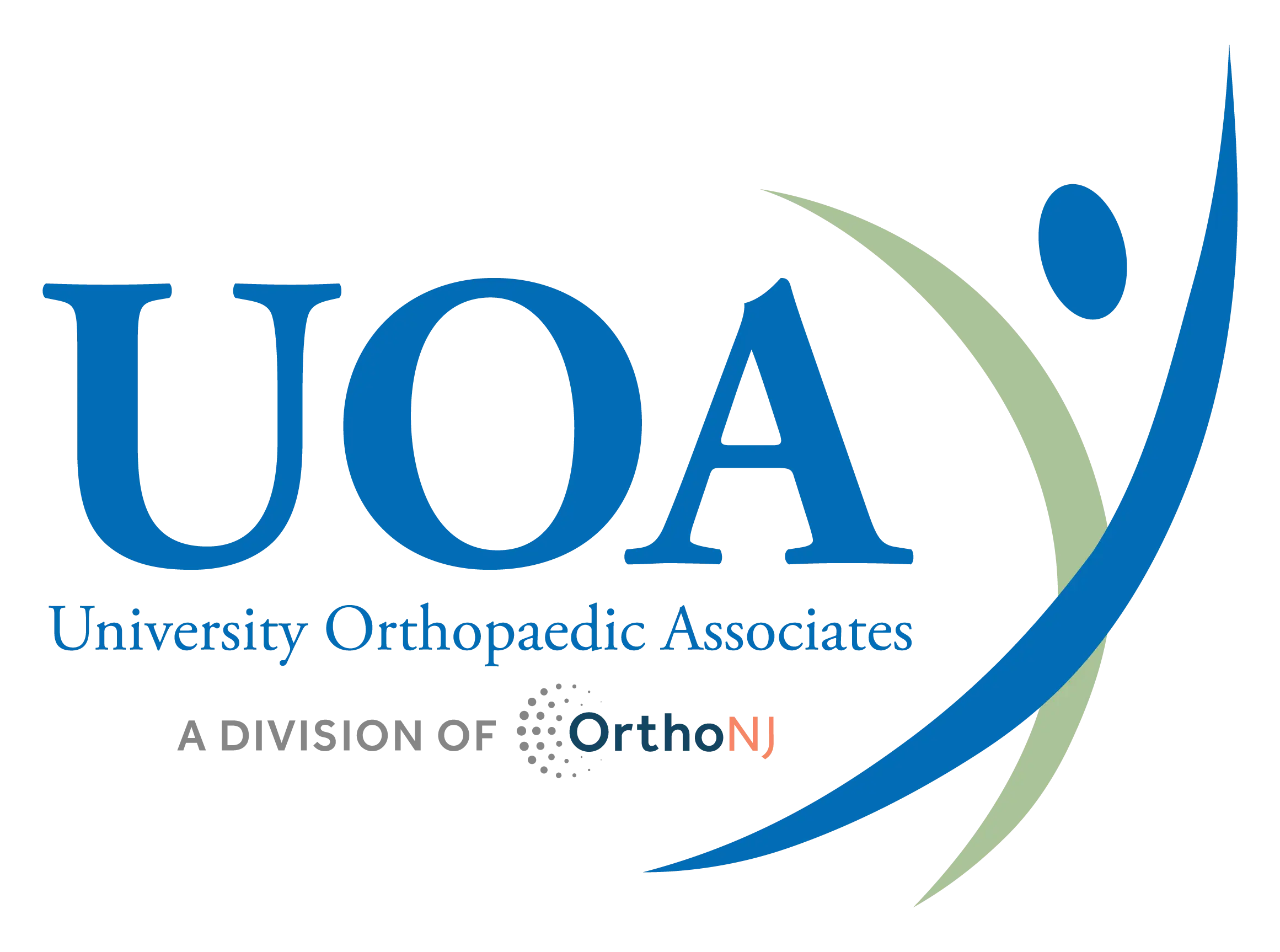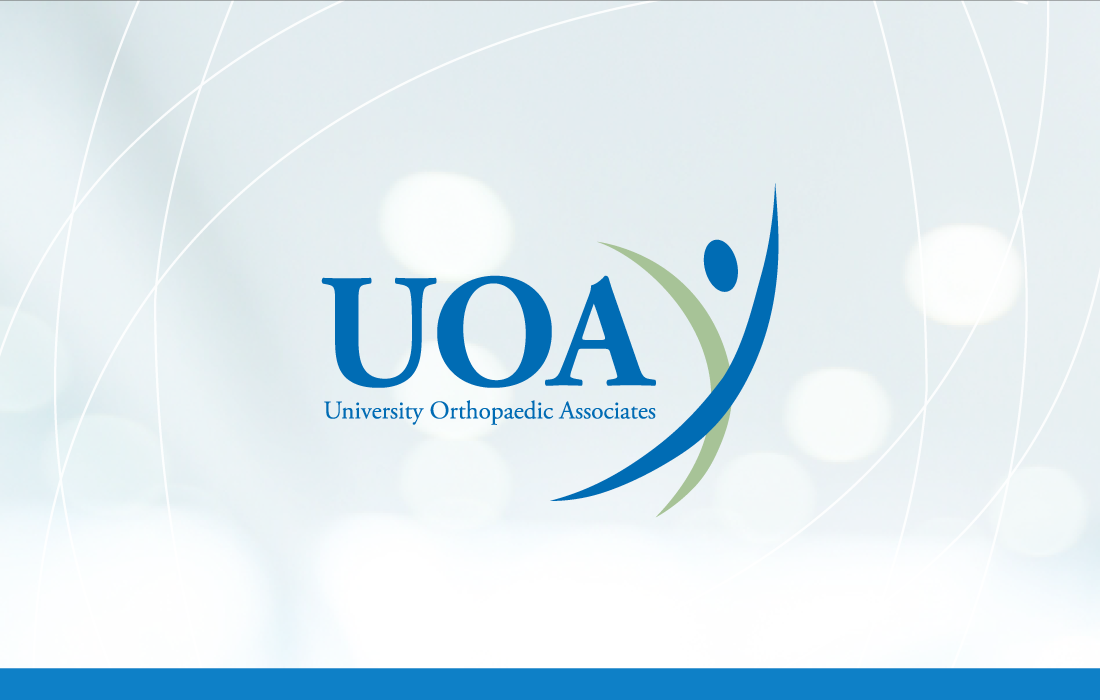Meniscus tears are a common knee injury that can often be effectively treated both with or without surgery, depending on a number of patient factors and specifics of the tear. A surgery to address the torn meniscus involves either repairing the meniscus with suture or trimming the affected tissue to reduce symptoms.
If you have a meniscus tear, having an evaluation with a sports medicine surgeon can help diagnose your symptoms and help return you to your full activities as quickly as possible. Here’s more about the symptoms and causes of meniscus tears and how to request an appointment with UOA to discuss your treatment options.
What Are Meniscus Tears?
The meniscus sits between the femur (thigh bone) and the tibia (shin bone). It acts as a shock absorber to cushion and protect your bones and knee joints. A meniscus tear occurs when this cushion pad rips apart, usually due to overuse, degeneration or an injury during sports activities.
Types of Meniscus Tears
There are many different types of meniscus tears. Degenerative meniscus tears occur as a result of wear and tear, often without an obvious traumatic event and often occur in the setting of knee arthritis. Symptoms from these tears may resolve without surgery.
Acute or traumatic meniscal tears result from an injury and tend to remain bothersome. They can often occur in the setting of other damage to the knee, such as an anterior cruciate ligament (ACL) rupture. Traumatic meniscal tears are characterized by various shapes and sizes:
Radial tears are tears that split the meniscus in a perpendicular way and extend from the inner margin of the meniscus and go towards the periphery, or outer part, of the meniscus.
Horizontal cleavage tears are common and split the meniscus into two halves like a hamburger bun. This creates two C-shaped discs, sitting on top of one another. Horizontal cleavage tears usually occur in older individuals.
Bucket-handle tears are the largest of all meniscal tears. These are tears around the rim of the meniscus, causing the central portion (the bucket-handle) to displace into the joint. These types of tears often limit the ability to fully straighten the knee and cause a limp.
What Are The Common Symptoms?
Pain in the knee is usually the first symptom of a meniscus tear. Many people with this injury also report feeling a popping sensation when the tear occurs or with motion of the knee. Other symptoms of a meniscus tear usually show up later and worsen with activity.
Symptoms of a meniscus tear include:
- Knee pain and stiffness
- Swelling in the knee
- Weakness in the knee
- Feeling like the knee may give out
- Catching or locking sensation in the knee
- Inability to fully bend or straighten the knee
- Loss of range of motion in the knee
What Are the Most Common Causes?
Meniscus tears usually occur when the knee twists abruptly while the foot remains planted on the ground. Activities that require frequent pivoting, squatting and kneeling typically increase the risk of a meniscus tear. Basketball, soccer, football, skiing and baseball are examples of sports that can lead to a torn meniscus.
Degeneration of the knee may also lead to meniscus tears, which occur in osteoarthritis. Adversely, meniscus tears can increase the risk for osteoarthritis later in life, as 75% of people with this form of arthritis have experienced a past meniscus injury.
Diagnosis
Often, a torn meniscus can be identified during a physical exam. This occurs when a doctor may manipulate the knee into different positions to help pinpoint the cause of whatever symptoms a patient may be experiencing.
Imaging Tests
X-rays are indicated to rule out knee problems that may have similar symptoms to a torn meniscus such as arthritis. However, X-rays are not able to determine a tear, since the meniscus is made of cartilage, which doesn’t show up on X-rays.
Ultrasound allows the doctor to examine the inner structure of the knee while in motion. This can help determine if there is a loose flap of cartilage getting caught between the moving parts in the knee.
Magnetic Resonance Imaging (MRI) is an imaging method for diagnosing meniscal tears with a 70 to 90 percent accuracy rate. It can create detailed images of both hard and soft tissues within the knee and produces cross-sectional images of internal structures.
Arthroscopy
In some cases, arthroscopy can be used to determine the type and extent of the injury. This is done with an arthroscope to examine the inside of your knee. The device contains a light and a small camera, which transmits an enlarged image of the inside of the knee onto a monitor. It is inserted through a tiny incision near the knee. If necessary, surgical instruments can be inserted through a second incision in your knee to trim or repair the meniscus tear.
What Are the Primary Treatments?
Meniscus tear treatment aims to restore the full range of motion to the knee, reduce pain and strengthen supporting muscles to minimize the risk of future knee injuries.
Non-Surgical
Minor meniscus tears, or strains, can usually recover on their own with rest.
RICE (rest, ice, compression and elevation) is the typical treatment protocol for low-severity meniscus tears. Keeping weight off the injured knee for long periods of time may allow for the cartilage to heal on its own. Your orthopaedic doctor may also recommend using over-the-counter pain relievers such as aspirin or ibuprofen to reduce pain and discomfort during RICE treatment.
If your meniscus tear does not respond to RICE, your provider may recommend other non-surgical treatments, including:
- Physical therapy, to strengthen the knee and restore range of motion.
- Medications, to reduce inflammation.
- Knee brace, to help stabilize the knee and reduce the load being placed on the meniscus.
- Weight loss, to put less strain and burden on the knee.
- Activity modifications, to put less strain on the knee and promote healing.
Surgery
A meniscus tear that causes significant symptoms, risks arthritis changes over time with conservative management or one that has not improved with non-surgical interventions may require surgery.
Surgical options for meniscus tears include:
- Meniscus repair. This method involves sewing the edges of the tear back together.
- Partial meniscectomy. The torn section of meniscus is removed.
- Total meniscectomy. The entire meniscus is removed.
- Meniscus transplant. This involves replacing a damaged meniscus with that from a donor.
Consult your orthopaedic doctor to determine which meniscus tears treatment is right for you based on your injury and general health status.
What Is Recovery Like?
Recovery from a meniscus tear often occurs without surgery and may last several weeks or months, depending on the severity of the injury and the treatment method used. Tears that are minor or caused by degeneration usually require four to six weeks of rest and physical therapy. Surgery may be recommended for meniscus tears that do not heal or respond to conservative treatments within this time frame.
If you have surgery, your orthopaedic surgeon will likely recommend staying off your knee or using a crutch for a few days to a few weeks. If your knee is not swollen or painful and you can demonstrate that you have regained strength and motion, you may be able to resume your usual activities within three to six months.
If you are dealing with a meniscus tear, understand that a full recovery is completely possible, especially if you work with an experienced and board-certified orthopaedic surgeon.
University Orthopaedic Associates offers a wide range of orthopaedic services, including treatment for meniscus tears. Contact UOA today at (732) 537-0909 to request an appointment if you need treatment for an orthopaedic injury.




